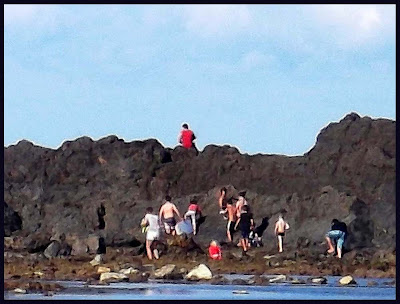It is a real privilege to own books by authors that you know, even if it is only online 'knowing.'
My collection started with 'If Only I Could Talk' by Tony Lewis. It was quite quickly followed by 'Spoilt' by Joanne Ellis, and 'How To Meet a Guy At The Supermarket' by Jessica Degarmo. Others followed until I now have a full shelf of books. Most of the authors I 'met' on the Authors' site, Authonomy. Several are from the Crit Group I was in, 'Stampman's' and later 'Stampman's Orphans.'
Some of these books are exceptional, some are good reads, but all but one are 'Indie' published, that is, published by a small publisher or by the author themselves. The exception is Casey Watson, who was on Authonomy, but had her book picked up by Harper Collins, not just one book, but a three-book deal, (by memory, my information could be out of date by now.)
Cyndi Tefft: 'Between.
Richard Bard: 'Brainrush.' This book has done very well, and now has (I think) two sequels.
Katy Walters: 'Phobic Dawn.' Katy has written some great books.
Shalini Boland: 'A Shirtful of Frogs.' This is my favourite of Shalini's books.
Charlotte Castle: 'Simon's Choice.' A story that speaks of life and death. This is a short book, and very, very good.
Jessica Degarmo: 'How to Meet a Guy at the Supermarket.' Jessica is now a popular romance writer. 'Supermarket' was her first book to be published.
Matt Hammond: 'Milkshake' This is what one could call an 'ecological thriller.' There is now a sequel called 'The Destiny Stone.'
Diane Nelson: 'Dragon Academy.' A YA (young adult) book, but I've never allowed that label to interfere with my enjoyment of a good book.
Joanne Ellis: 'Spoilt' Joanne is an Australian author. She's had criticism from Americans because of the title of her book - it seems that American don't know 'spoilt,' just 'spoiled.'
Joanne has several books published, and her sales are high enough that she can call herself a 'bestselling author.' 'Spoilt' was the first. It achieved the prize of the 'Editor's Desk' on the writers' site called Authonomy.
Scott Strosahl: 'Framed.' An excellent thriller, which I must read again.
Casey Watson: 'The Boy That No One Loved.' Published by Harper Collins.
Shalini Boland: 'Outside.' YA thriller, now with a sequel.

'The Dragon Academy' is notable for the way it looks. It is just such an attractive book.

I am so impressed with 'The Pencil Case' that it has had two blog posts all to itself.
And I will not forget my own. 'Not a Man' achieved a great deal of attention when on Authonomy, and earned the prize of the 'Editors Desk.' I was offered the contract to publish in the same month.
The blurb:
From boy of the slums to Oxford Graduate. This is the story of Shuki Bolkiah, modern day eunuch.
'Not a Man' is set in an unnamed country of Arabia. Shuki is aged ten, and a 'bed-boy.' His master wants his beautiful boy to stay beautiful, so arranges for him to have 'a small operation.' This traumatic event changed forever the life of a clever, determined boy.
Shuki learns to manipulate his master. He learns to read and write, he gets his master into the habit of giving him large sums of money, and he makes friends with the master's sons.
Shuki becomes more beautiful with every passing year. His master becomes more possessive, more jealous, and Shuki is guarded. When his master takes him to England, he escapes and starts a new life with the money he's saved. He is fifteen.
A typical review is by Shalini Boland (on Amazon UK)
‘This story began by breaking my heart. It's such a compelling read, even though I cringed through the more graphic parts. The characters' relationships are complex and I like the fact that the master isn't a caracature, which would have been an easy route to go down. The tension was kept up throughout and I found myself racing to see if Shuki would find his freedom and a more unfettered happiness. This is a first class novel about a difficult subject that has been handled beautifully. But more than that, it is a story about the struggles of life - the injustice, the strength of will, the terror and the beauty of it all.’
There are now three books in the series, with a fourth and final yet to come.
Look for them on the usual online booksellers such as Amazon, Barnes and Noble and Smashwords.


 Thanks to Wade and to Rob, skateboard kings, who gave me permission to use their images for my books.
Thanks to Wade and to Rob, skateboard kings, who gave me permission to use their images for my books.






















